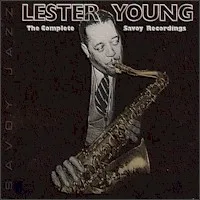Bitrate: MP3@320K/s
Time: 35:24
Size: 81.0 MB
Styles: Fusion, Latin jazz
Year: 1978/2001
Art: Front
[4:31] 1. Look Into His Eyes
[4:31] 2. Juicy
[5:07] 3. Hidden Within
[3:29] 4. You On My Mind
[5:02] 5. What Can I Say
[4:44] 6. Love's The Way I Feel 'bout Cha
[3:52] 7. That's What She Said
[4:04] 8. You Are My Heart
Accompanied By/With – Airto, Alphonso Johnson, Byron Miller, Ernie Watts, George Bohanon, George Duke, Jay Graydon, Leon Ndugu Chancler, Oscar Brashear. Recorded (mostly in 1976) at Paramount Recording Studios, Holywood.
Toward the close of her Milestone years, Flora Purim teamed up with producer/keyboardist George Duke -- and the imprint of Duke, then entering his funkified "Dukey Stick" period, is heavy enough to dominate the record. Very often, Duke uses his then rhythm section of bassist Byron Miller (alternating with Alphonso Johnson) and drummer Ndugu Chandler to give the grooves a definite '70s funk feel -- and percussionist Airto adapts his talents seamlessly to this way of life. Duke's electronic keyboard arsenal is all over the record, occasionally going gonzo on the Moog synthesizer, draping a then-still-fashionable ARP string synthesizer over the landscape, comping on the Rhodes electric piano or Yamaha electric grand. Joe Henderson turns up with a funk-bop tenor solo on the Brazilian/funk groove on "What Can I Say?" (what could he say?), part of a first-call L.A. studio horn section that includes trumpet Oscar Brashear, trombonist George Bohanon, and Ernie Watts on flute. And where does all of this instrumental activity leave Purim? Floating on top of the mix as usual, whether in a wordless vocalise, agile scatting with Duke's lead synth on the title track, or heavily accented English, sometimes in multiple overdubs. Nevertheless, the Brazilian feeling is not quite cancelled out by Duke's busy production hand -- and this Western Hemispheric amalgam would soon pave the way for groups like Azymuth. ~Richard S. Ginnell
Toward the close of her Milestone years, Flora Purim teamed up with producer/keyboardist George Duke -- and the imprint of Duke, then entering his funkified "Dukey Stick" period, is heavy enough to dominate the record. Very often, Duke uses his then rhythm section of bassist Byron Miller (alternating with Alphonso Johnson) and drummer Ndugu Chandler to give the grooves a definite '70s funk feel -- and percussionist Airto adapts his talents seamlessly to this way of life. Duke's electronic keyboard arsenal is all over the record, occasionally going gonzo on the Moog synthesizer, draping a then-still-fashionable ARP string synthesizer over the landscape, comping on the Rhodes electric piano or Yamaha electric grand. Joe Henderson turns up with a funk-bop tenor solo on the Brazilian/funk groove on "What Can I Say?" (what could he say?), part of a first-call L.A. studio horn section that includes trumpet Oscar Brashear, trombonist George Bohanon, and Ernie Watts on flute. And where does all of this instrumental activity leave Purim? Floating on top of the mix as usual, whether in a wordless vocalise, agile scatting with Duke's lead synth on the title track, or heavily accented English, sometimes in multiple overdubs. Nevertheless, the Brazilian feeling is not quite cancelled out by Duke's busy production hand -- and this Western Hemispheric amalgam would soon pave the way for groups like Azymuth. ~Richard S. Ginnell
That's What She Said




















